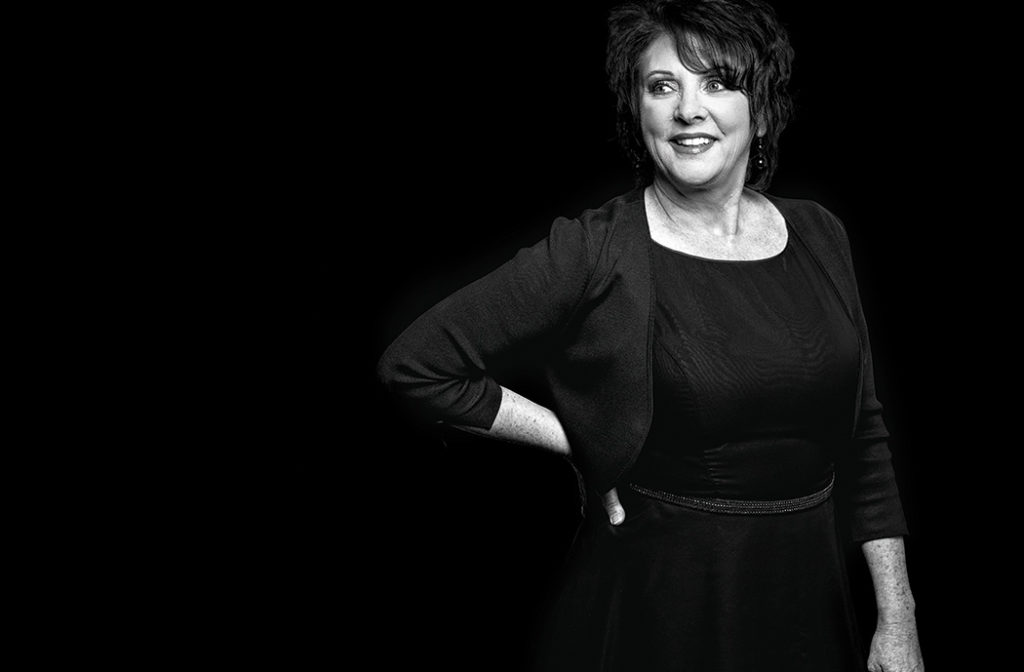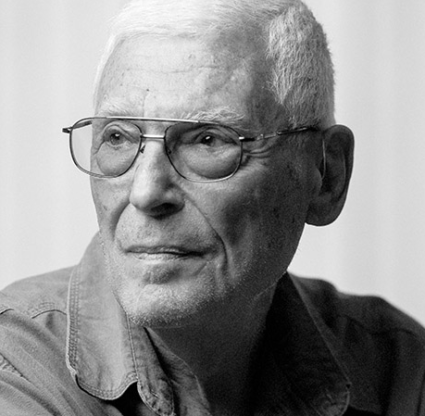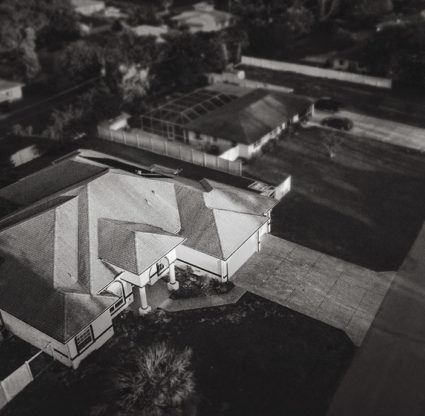Talk about finding your target audience.
Community Foundation of Collier County CEO Eileen Connolly-Keesler, fundraiser extraordinaire, is standing in front of a crowd of 150, hand-selected by her board of directors, at a private club in one of the wealthiest zip codes in the United States.
But her hand is firmly closed.
“There is no envelope,” she promises with a grin. No, tonight is not a get-out-your-wallet gala (a weekly affair in Southwest Florida this time of year), but a plant-the-seed-for-later endeavor.
Since her arrival in Southwest Florida six years ago, Connolly-Keesler has blanketed Collier County, appearing at hundreds of gatherings large and small, telling people about how her organization puts donors’ money to work bettering the community.
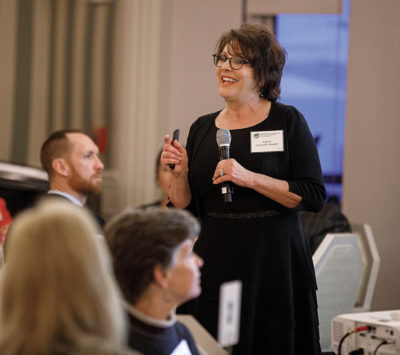 It’s an impressive feat of public speaking that she and her staff crammed the presentation into less than 30 minutes, because Connolly-Keesler has an awful lot to talk about. In six years, she has grown the organization’s assets by more than $100 million and shifted the foundation from the periphery of Collier County philanthropy to its core. The foundation has assumed a new role in helping nonprofits grow their endowments, encouraged multi-organization collaborative projects, explored public-private partnerships, addressed gaps in education and social services, jumped to respond to Hurricane Irma and red tide, and, critically, paired with the Richard M. Schulze Family Foundation to commission a first-of-its-kind needs assessment in Collier County. The results of that report will help steer public, private and nonprofit spending and decision-making related to everything from economic opportunity to cultural offerings to housing affordability for years to come.
It’s an impressive feat of public speaking that she and her staff crammed the presentation into less than 30 minutes, because Connolly-Keesler has an awful lot to talk about. In six years, she has grown the organization’s assets by more than $100 million and shifted the foundation from the periphery of Collier County philanthropy to its core. The foundation has assumed a new role in helping nonprofits grow their endowments, encouraged multi-organization collaborative projects, explored public-private partnerships, addressed gaps in education and social services, jumped to respond to Hurricane Irma and red tide, and, critically, paired with the Richard M. Schulze Family Foundation to commission a first-of-its-kind needs assessment in Collier County. The results of that report will help steer public, private and nonprofit spending and decision-making related to everything from economic opportunity to cultural offerings to housing affordability for years to come.
If Connolly-Keesler were a for-profit CEO, no doubt she would have made local headlines by now, but it takes a little digging to realize the accomplishments of the less ostentatious nonprofit world (and an executive who’s not exactly chasing the spotlight).
And that’s why we’ve plopped down in Connolly-Keesler’s office to understand what she saw in Collier County upon her arrival and how she’s positioned her organization to help the region thrive.
If you weren’t clear on the income disparity in Collier County and the need for charitable giving, the findings of the aforementioned needs assessment put it in stark black and white: The top 1 percent of Collier residents have an average household income of $4.2 million, while the bottom 99 percent have an average household income of $57,258. That may not even be enough to live on in Collier. The minimum sustainable living wage for a family of four here is $66,127, and that covers just the basics, like housing, groceries and utilities.
Connolly-Keesler, of course, was aware of income inequity, but even she was surprised to see the magnitude of it.
“There was the ah-ha moment for me,” she says, then corrects herself. “No, it wasn’t an ah-ha moment. It was a holy-crap moment!”
She gives a quick and hearty laugh. Connolly-Keesler could no doubt spar with the best of Wall Street, but her demeanor is casual—she’s the kind of person more easily imagined in a sports bar than a fine dining establishment. Not that she can’t pull off the latter.
The point is this: Collier County, for all of its coastline wealth, suffers enormous poverty in its interior. And that’s among the messages Connolly-Keesler is trying to deliver as she explains her organization’s role in amassing funds that can be distributed to nonprofits and community projects that address social needs.
“Look out there,” she says, gesturing to the window. “Look how beautiful it is. Where are the problems? There are no problems. We live in paradise.”
Or so the average snowbird might think.
“It comes back to: What’s the education we’re giving them? I think we’re starting to see that (attitude) turn and people are starting to realize they need to support this community also. … I’m not saying take it away from (hometown) communities—just leave a little piece here. Or a big piece,” she laughs again. “I’ll take it!”
Here’s the other thing many people don’t realize about Collier County: Unlike in other parts of the country, government spending on human service needs here is minuscule—just 1.6 percent of the county budget, according to Connolly-Keesler.
Lest we regress into a circa-2011 “1 percent vs. the 99 percent” shouting match, know this: In Collier County, the 1 percent is keeping an awful lot of other people afloat. “Without them, there would be a whole lot of hurt in this community,” Connolly-Keesler says.
That reality makes her job all the more critical. And she knows it.
“I have no hobbies. Does that tell ya something?” she quips.
Connolly-Keesler’s primary strategy is to go after money that, frankly, you can’t take to the grave. A 2012 study by the Florida Philanthropic Network suggested that as much as $14.7 billion in Collier County alone would change hands by 2020 as we lose the boomer generation (overall, some $52 billion is expected to be passed down during the generational shift). If just 5 percent of $14.7 billion were captured in endowments, there would be $734 million available for charities over a decade.
Connolly-Keesler invites donors to think beyond cash—property, trust funds, artwork or collections that the kids don’t want; she and her staff will spin it into money for community services.
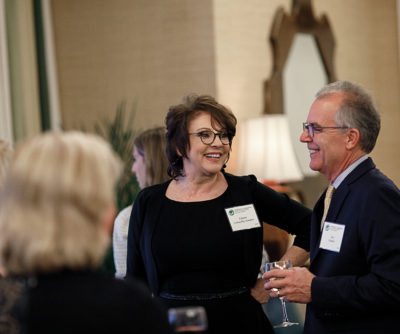 It’s a different fundraising approach than, say, a capital campaign or annual gala. She leaves those to the people providing the direct client services. For good reason.
It’s a different fundraising approach than, say, a capital campaign or annual gala. She leaves those to the people providing the direct client services. For good reason.
“I think donor fatigue is definitely alive and well here. People think, ‘Good gosh, can one more piece of mail come, or can one more person hit me up for money?’ We definitely hear that from donors,” she says. “I would rather work with donors on their estate plans for when they are done with their money.”
That’s not to say she hasn’t done other types of fundraising. Shortly after arriving here, Connolly-Keesler introduced “Give Where You Live,” an annual 24-hour fundraising blitz urging people to pledge any amount ($10 is as welcome as $10,000) and her foundation and the Schulze Foundation would match it. In four years, that campaign raised more than $13 million for area nonprofits.
“They have been one of our most significant partners in funding some of our initiatives,” says Dr. Jaclynn Faffer, CEO of the Naples Senior Center at JFCS. There were no senior centers in town when Connolly-Keesler arrived—a gap that, frankly, boggled the new foundation chief. She prioritized Faffer’s center and another, the Golden Gate Senior Center, for grant funding. “I think (Connolly-Keesler) brought with her a real understanding of what it takes for a nonprofit to respond to community need,” Faffer says.
In addition to helping organizations like Faffer’s, Connolly-Keesler has been persuading donors to offer at least a portion of their contributions to her unrestricted funds—accounts that can be tapped when there’s a community emergency. The foundation did that twice in 2017 and 2018, for Hurricane Irma and for red tide relief. During Irma, the organization spent $75,000 to get food and water to the decimated county and teamed up with other nonprofits to raise $2.2 million for a community relief fund. When red tide virtually halted coastline activity and tourism, the foundation put up $50,000 to help out-of-work fishing captains and other small-business owners. Donors kicked in another $30,000-plus.
“The best thank-you notes I have ever gotten were from those captains,” Connolly-Keesler says. “I think the biggest thing was psychological—that somebody cared.”
Connolly-Keesler hails from Oshkosh, Wisconsin, where she led the region’s community foundation. The difference in average temperature (46 degrees vs. 71 degrees) pretty much symbolizes how disparate the two communities are.
Connolly-Keesler was eager to learn more about her new (and gleefully snow-less hometown) and sought out community data. She learned there was no single study examining community needs, assets, resources and demographic projections.
She was determined to commission one.
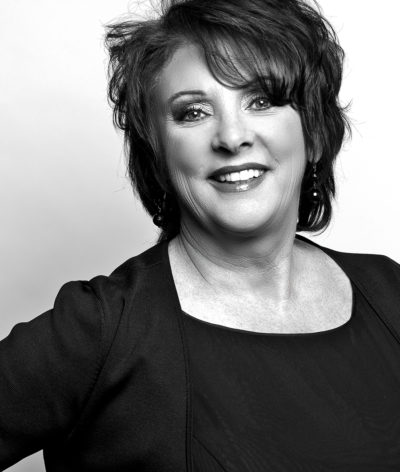 Knowing her foundation couldn’t take on such a project alone, Connolly-Keesler approached a few organizations, including the Richard M. Schulze Family Foundation, established by Best Buy Founder Dick Schulze, who retired to Naples.
Knowing her foundation couldn’t take on such a project alone, Connolly-Keesler approached a few organizations, including the Richard M. Schulze Family Foundation, established by Best Buy Founder Dick Schulze, who retired to Naples.
No one offered an immediate “yes.” She did not interpret the nonresponse as a “no.”
“Eileen was really confident about the value of it, and she kept coming back again and again about the idea—in a really nice way—to convince us of the value of the study,” says Mary Beth Geier, Florida director of the Schulze Foundation, the eventual funder of the needs assessment. She can’t recall anything Connolly-Keesler said that tipped her organization to “yes.” “It was more that every time something popped up, she would say, ‘See, this is why we need an assessment,’ or, ‘See, an assessment would really help with this issue.’”
The study, released in 2017, measured 10 areas including education, economic opportunity and health care access. The firm hired to conduct the study, Q-Q Research Consultants, used a combination of online surveys and in-person focus groups to reach out to residents from every part of Collier County. Connolly-Keesler hopes government and nonprofit organizations use the findings to guide policy, steer dollars and initiate programs.
“That study,” says Collier County Commissioner Penny Taylor, “is just invaluable. They’ve done the grunt work.”
Among the findings: Access to primary care physicians is limited; home ownership is becoming unattainable; affordable, high-quality child care is in short supply; and the most prevalent jobs aren’t the ones that pay a living wage. There were a few surprises tossed in, too, needs that might have eluded community leaders if they hadn’t engaged with residents. “I laughed about it when people said, ‘It’s dark in this community at night,’” admits Connolly-Keesler. “I thought, ‘Well that’s because it’s nighttime!’ But I never would have noticed how dark it is on the side streets. They don’t have (streetlights) and that’s not safe for women in particular.”
Connolly-Keesler hopes to commission another study in a few years to see what progress has been made on everything from simple fixes like street lighting to vexing challenges such as the lack of affordable housing.
No doubt Connolly-Keesler had an additional motive in insisting on a needs assessment. The study created a common dataset and put everyone on the same page—something she’d been trying to do since she got here.
“There was really a lack of trust in the community among the nonprofit world. Because they’re competitive (for donors), the trust issue was a pretty big one,” Connolly-Keesler says, referring to the attitude she encountered when she arrived.
There was good work going on, she says, but not always in tandem. Connolly-Keesler isn’t the only one to remark on the disconnect. Champions For Learning President Susan McManus had been eager to move toward a “collective impact” model, and she was excited to discover Connolly-Keesler shared her mindset. McManus asked her to serve on the steering committee for Future Ready Collier, a multi-organization effort to ensure Collier children are ready for kindergarten and then that they graduate ready for college, technical school or careers.
“Eileen—she just values all that,” McManus says. “She said ‘yes’ to everything. She really has been a leader behind it.”
The attitude among nonprofits has shifted. “I do think there is a much stronger sense of collaboration,” McManus says. “I believe it takes confident, strong leaders in the community who know we are stronger when we work together, and we have a lot of strong leaders right now.”
Next up: Connolly-Keesler is wading into the housing conundrum, commissioning a study to evaluate the feasibility of building workforce housing on county-owned sites. And, in line with Future Ready Collier, she’s working with Hodges University to explore the creation of more technical training opportunities.
Neither endeavor is a one-woman (or one-organization) kind of job.
“She’s able to look at a big picture and develop solutions, but, more importantly, to bring other people into the solutions,” Geier says.
“Sometimes it’s hard to contain her,” says Mary Lynn Myers, the foundation board chair. One example: A few years ago, Connolly-Keesler came to the board with what seemed like a radical idea—buying office space. The foundation’s lease on a small and rather out-of-the-way office was about to expire. Board members raised eyebrows at the request, but Connolly-Keesler convinced them of the eventual cost savings. They and other donors put up money, and the organization bought a suite on Pine Ridge Road. Consider the move symbolic—the foundation as a permanent fixture located at the center of town.
“When I first came on the board, (people) would say, ‘What’s a community foundation?’” recalls Myers, who joined the organization shortly after Connolly-Keesler’s arrival. “I don’t hear that much anymore.”
That’s the payoff for the never-ending outreach. After the formal presentation at the private club, Connolly-Keesler works the room, shaking hands, greeting acquaintances and introducing herself to strangers, her laugh floating through the space. Whether she’ll see a surge of new donors after tonight is anyone’s guess; she’s mostly hoping to implant an idea that attendees will act on when they’re ready to think hard about their legacies.
That’s OK.
“It’s the tortoise,” Connolly-Keesler says of these recruitment efforts. “You just keep going. And we’ll get there.”

